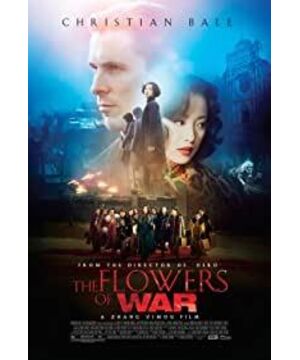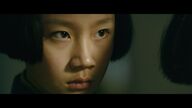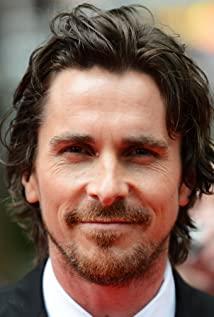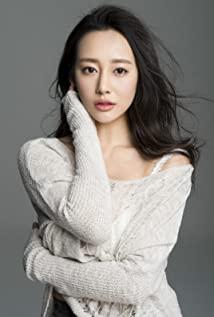This sentence comes from a short article by Lao Si who recommended his good brother Yimou as Time Magazine's Person of the Year. The reason for the list is that the latter directed the opening ceremony of the Beijing Olympics. The original words in the article are: "Zhang Yimou appointed Gong Li as the heroine in six films, and the two of them brought sex and eroticism into Chinese films together, and they were honored for it."
But somehow, the words changed when they reached China. Not to mention that the translation of "originator" has the suspicion of "over-modified", it is very unfair to say that it abruptly obliterates Gong Li's indispensable position in it.
Even Lao Si's original words were not rigorous enough. Anyone familiar with the history of Chinese films knows that before Zhang Yimou debuted, the erotic elements in Chinese films had secretly awakened. In the end, who was the first to open the door and introduce the first "erotic" smoke, the theory should be Xie Jin. From the fierce embrace in "Wrangler", to Liu Xiaoqing's charming eyes and Jiang Wen's suddenly open chest in "Furong Town", on the ambiguous and oppressive pain spikes, there is a lingering passion and passion. Sexy flirting.
But it is undeniable that "Red Sorghum" came out in 1987, like a blazing sun, drowning out the gleams of light that had passed through the cracks in the door before.
"Red Sorghum" created the vocabulary of an era: "Wild He" - the hero and heroine completed the first "Wild He" in the history of Chinese film in the majestic sorghum field. This savage wind that rises from the ground and destroys the dead has led Chinese films to an unsurpassed artistic height.
Five years later, with the successive releases of "Judou" and "Raise the Red Lantern", Zhang Yimou completed his "Red Trilogy". Red, itself a symbol of lust, has an unstoppable enthusiasm, and it will burn until it burns out.
This is Zhang Yimou's gorgeous starting point on the road of eroticism, full of lawless and natural lust. During this period, the biggest feature of Zhang Yimou's eroticism is "primitive passion", which can be called his "primary color period".
Primary colors mean the original, instinctive, pure and original.
The so-called "raw" does not mean rough, nor does it mean savage. It first represented the cultural roots of Chinese intellectuals in the 1980s. Under the cultural crisis of the collapse of tradition, intellectuals have a kind of imagination, fascination and certainty about their own cultural foundation. They connect the origin of the nation with relatively primitive or weak images of animals, wildness, countryside, native land, women, etc., portray human nature by depicting desire, release vitality by releasing passion, and transcend and overcome the ignorant and backward history by exposing and rebelling. Shadow, in order to fill the spiritual longing in the cultural void and soothe the body and mind of the victim.
The "primitive passion" also symbolizes the return of female consciousness. Before the 1980s, Chinese women were either portrayed as a political and social symbol of no gender, an "iron girl" with "iron arms, iron legs and iron shoulders", or they were interpreted as the traditional virtues of industriousness, bravery and hard work. The presenter, in the image of a mother, silently loads and gives silently. In the early 1980s, women began to appear in the image of victims and sacrifices in history. They suffered disasters, were judged, carried, endured, and died, all for the salvation and forgiveness of men and history. It was not until Zhang Yimou that women reappeared in the vision of men's desires, and women's own desires also reawakened. Whether it's Jiu'er, Judou, or the concubines in the big mansion, they are all stunners who arouse men's desire, and they themselves conquer or try to conquer men and the world through sex, and then change their own destiny.
But Zhang Yimou's original lust could not last long. Gong Li's departure is a big blow. As Spielberg said, Zhang Yimou and Gong Li introduced sex and lust together. Two people, not one without one. Facts have proved that none of the "conspiracy" girls after Gong Li can become the kind of sexy spokesperson who is free and natural.
After Gong Li left, another reason also prompted Zhang Yimou to make a hasty transformation: film critics and sixth-generation directors who have surfaced have criticized him, such as "can only shoot rural themes" and "use China's backwardness to please foreigners" etc.
Therefore, from "Alive" in 1994 to "Happy Times" in 2000, the word "eroticism" was almost invisible in Zhang Yimou's dictionary. This stage can be called the "fading period".
"Have Something to Say" is a man's play in an absurd city, and "No One Can Be Missed" has the appeal of calling on people to donate money to help students in impoverished mountainous areas. "My Father and Mother" used Zhang Ziyi for the first time to tell a love story. In this film, Zhang Yimou once again showed his tenderness towards women, and his shots touched Zhang Ziyi's face carefully and lovingly again and again. But there is no temptation, no taste of sexual desire, just a pure face in pure love in front of the camera. Zhang Ziyi, who was known as "Little Gong Li" at that time, was completely incomparable to Da Gongli in her erotic performance. Gong Li's sexiness is unstoppable, like boiling water. And Zhang Ziyi is just a little girl with a ponytail and looks like a typical sweetheart baby. There is not a single kiss, not a single touch in the whole film, this love is more like a fairy tale.
In 2002, Zhang Yimou contributed "Hero", the pioneering work of Chinese commercial blockbuster. It is said that it was because he saw that Ang Lee won the golden statue with "Crouching Tiger, Hidden Dragon", which stung his Oscar heart, so he had a series of money-making blockbusters with declining reputation.
But Zhang Yimou's transformation is not only an economic consideration, but also his repositioning of his political and cultural status. Since 2000, the fifth-generation directors, especially Zhang Yimou and Chen Kaige, have steadily occupied the Chinese film industry, and have gone to the world, becoming the "leaders" of Chinese films. They have entered the ideal state of life, and they no longer need to question, subvert, and deconstruct the existing political, cultural, and ethical authority, nor do they need to declare their existence and adulthood in painful resistance. On the contrary, they began to show a state of surrender in front of the new discourse authority constructed by marketization and globalization. In fact, this identification and reconciliation is also the establishment of their own identity in the new cultural context. At this time, what they need is to maintain the rationality of the existing order, so as to make their own existence rational.
No matter what the reason is, starting from "Heroes", Zhang Yimou, who once again brought eroticism back to the movie, needs no longer the destructive "original passion", but can be used as a gimmick, attracting attention and raising the box office. "Commercial Erotica". As a result, the color inevitably overflows and gets out of control. This period can be called the "color mixing period".
Chaos means chaotic, chaotic, or even chaotic.
Whether it is the passionate scene of Zhang Ziyi and Tony Leung in "Heroes", the open-air bathing scene and rape scene in "House of Flying Daggers", until the "meat buns" swaying on the screen in "The Golden Armor in the City", it all implies that Zhang Yimou's eroticism has become irrelevant to theme, vitality, and even emotion.
If it is said that Zhang Yimou 20 years ago, eroticism was embedded in his bones, pulsing with his vitality, and every movement was accompanied by pain and pleasure; then Zhang Yimou 20 years later, eroticism is like a human body painted on the skin Painted, radiant, and dazzling, but it was washed away with a gentle flush of water.
But at this time, a group of directors known for their erotica have emerged in the Chinese film industry. They dance with long sleeves and have their own characteristics: Wong Kar-wai's eroticism, set in a blurred city as the background, coldly watching the wandering in decadence and The tight and ambiguous men and women; Ang Lee's eroticism, which takes the vast world as the stage, crosses the barriers between the East and the West, and pays attention to the love behind sex with a calm and compassionate attitude; Jiang Wen's eroticism is most closely related to Zhang Yimou's early "primitive passion". Approaching, hot and violent, but with a hint of teasing and cynicism.
In this situation, Zhang Yimou has fallen behind, and he is still aiming at the little golden man.
This time, he brought the thirteen hairpins of Jinling under the background of the Nanjing Massacre, trying to re-interpret his alluring woman in the whirlpool of history and before the cliff of fate.
If we can once again see the woman in "Red Sorghum" and "Judou", see the woman in the bright sunshine, the misty mist, and see the woman who is full of amorous feelings in a glance, maybe, Zhang Yimou is really not far from the Oscars.
View more about The Flowers of War reviews










